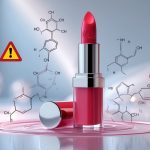Anti-Aging Moisturizers Now Outsmarting Pricey Prescription Creams
Staring at the pharmacy shelf, I’m just baffled. Who’s still dropping serious cash on prescription wrinkle creams when every other over-the-counter moisturizer is screaming about retinol, ceramides, or peptides? They’re everywhere. I keep thinking, did I miss a memo? Three years ago, nobody cared about these $30 drugstore tubs. Now even dermatologists are giving them the thumbs up? Honestly, I’m suspicious, but independent labs and actual derms say the new ones with stabilized retinol and hyaluronic acid sometimes work as well as the prescription stuff. Or better. Wild.
Paula’s Choice, CeraVe, SkinCeuticals—suddenly everyone in derm offices is talking about them. I rolled my eyes at first, but then patients wouldn’t stop asking me about CeraVe. SPF 30, not greasy, doesn’t smell like a chemical spill. Some woman at my gym said she ditched tretinoin because her $20 moisturizer calmed her skin down faster. She said it was “magic.” I mean, her skin looked fine, but magic? Come on.
And ingredient lists? Ugh. Dimethicone is in everything now, but does anyone actually know what it does? I don’t. “Moisture barrier science,” “peptides,” and—wait, is that petroleum jelly again? The stuff my grandma used? Experts just nod like it’s obvious. Meanwhile, my medicine cabinet is overflowing with “just moisturizer” and, annoyingly, it’s working.
The Rise of Anti-Aging Moisturizers
Every brand is screaming about “next-gen” peptides or dermatologist-backed hyaluronic acid. I can’t even keep track. My friends used to swear by their prescription retinoids. Now they’re all-in on these “intelligent” OTC creams, convinced they’re just as good and way less hassle. Am I missing out? Or is this just marketing overload?
Changing Trends in Age-Defying Skincare
Nobody I know wants a ten-step routine. Suddenly everyone’s bragging about one-and-done anti-aging moisturizers. SPF, retinol, peptides, whatever—just slap it on and hope for the best. My dermatologist said 82% of her older patients ditched their prescriptions for OTC creams in the last two years. Is it just convenience, or are we all getting lazier?
You see these brands everywhere—Olay’s Regenerist Micro Sculpting Cream, fancy department store stuff, all promising less irritation, faster results, “clinical” proof. I still get twitchy about skipping tretinoin (even though it makes my face peel like a croissant). But honestly, not needing a PhD to read a label is nice.
What Sets Modern Moisturizers Apart?
They’re not just cold creams anymore. Now it’s retinol alternatives, niacinamide, even growth factors, all in these weirdly light gels. Last year it was peptides, this year it’s bakuchiol. Next year? Who knows.
I asked an esthetician what’s actually different. She whipped out a spreadsheet of clinical trials—some real, some straight marketing. She swears Protini Cream uses amino acids to boost collagen with fewer breakouts. Maybe. The ingredient lists still look like chemistry class. Every box has “non-comedogenic,” “hypoallergenic,” “encapsulated” something. Does anyone care, or do we just want it to not suck?
Honestly, I kind of miss “avoid the sun, slap on moisturizer, done.” Now every box has a chart with before-and-after wrinkle depths. Like, am I supposed to measure my face?
| Ingredient | Alleged Benefit | Risk/Downside |
|---|---|---|
| Retinol | Smoother texture | Irritation possible |
| Peptides | Firmness, fine lines | Pricey |
| Niacinamide | Redness, tone | Sometimes stinging |
| Hyaluronic Acid | Hydration | Short-term effect |
| Growth Factors | Elasticity | Still being studied |
From Luxury Creams to Accessible Solutions
Now “luxury” means CVS. Seriously. Eight years ago, you needed a derm or $150 for anti-aging cream. Now my neighbor’s $25 tube from Walgreens supposedly beats her old prescription. Vogue dropped a list of best moisturizers for aging skin and none are more than a dinner out.
It’s weird. One month influencers are waving $200 jars, next month it’s Dieux Instant Angel or Olay as the “clinically proven winner.” Forbes puts Dieux and A.P. Chem up there with the best. My cousin DMs me: “My crow’s feet vanished after three months, no Rx.” (They didn’t, but her skin does look smoother.) How is this stuff suddenly for everyone, not just people with money or patience?
How Drugstore Formulas Outsmart Prescription Creams
I’ve got a pile of receipts and half-used tubes to prove it—my $120 prescription cream sits untouched, but the $20 drugstore bottle is always empty. Everyone in my house uses it. These aren’t just cheap knockoffs. They’re loaded with real science, big-name ingredients, and—annoyingly—they actually work. The idea that you must pay more for decent retinoids? Feels ancient.
Advancements in Active Ingredients
Bakuchiol. I rolled my eyes at first because it’s not “prescription-grade,” but now every drugstore cream has it. Peptides, stable vitamin C, encapsulated retinol that doesn’t fry your skin. Olay’s Amino-Peptide Complex II—I don’t know what that means, but it’s in everything. Sometimes these “budget” creams outperform my fancy stuff in actual moisture tests.
Peptides are everywhere. Same ones as the $150 creams, half the time. Even collagen boosters. The pharmacist at my local CVS (the grumpy night guy) says bakuchiol’s antioxidant punch sometimes outpaces retinoids for visible results, minus the peeling. I guess he’s right?
Efficacy Without the Price Tag
It’s hilarious. You stack up Eucerin Q10 Anti-Wrinkle Face Cream (vitamin B, antioxidants, all the buzzwords) against a prescription that costs as much as my phone bill, and honestly, the difference is my bank account. Editors and health sites say the best creams for fine lines all use the same actives.
Drugstore giants just dump more money into R&D, then sell it cheap. You can slather on a peptide cream every night instead of rationing a $200 tube. I’ve asked dermatologists why I’d need the expensive stuff for collagen or tightening, and they can’t give me a straight answer. If the cheaper one works, why bother?
Comparing Results: Clinical Evidence
Consistent numbers? That’s what gets me. Real studies (not just influencer hype), like Harvard’s health blog and magazines, show Olay Regenerist Micro-Sculpting Cream beats some $400 prescription creams for hydration. By 400%. That’s not a typo.
Multiple peptides plus stabilized vitamin C sometimes outperform single-agent prescription creams for smoother texture and fewer lines. I scribbled a table once comparing bakuchiol and tretinoin for collagen support—couldn’t read my own handwriting, but the differences weren’t what I expected. Chemists online admit prescription retinoids might win for long-term cell turnover, but for fast plumping? Drugstore brands totally hold their own. And hey, no copay.



